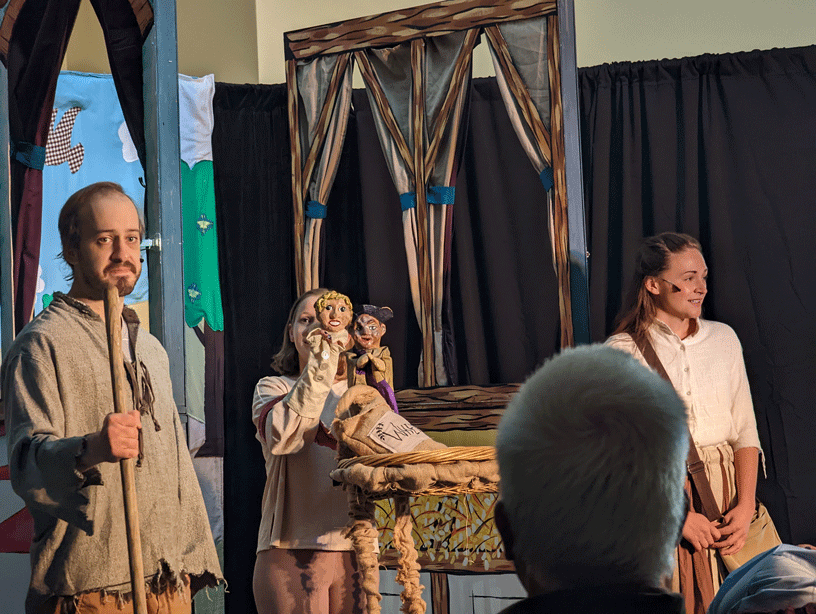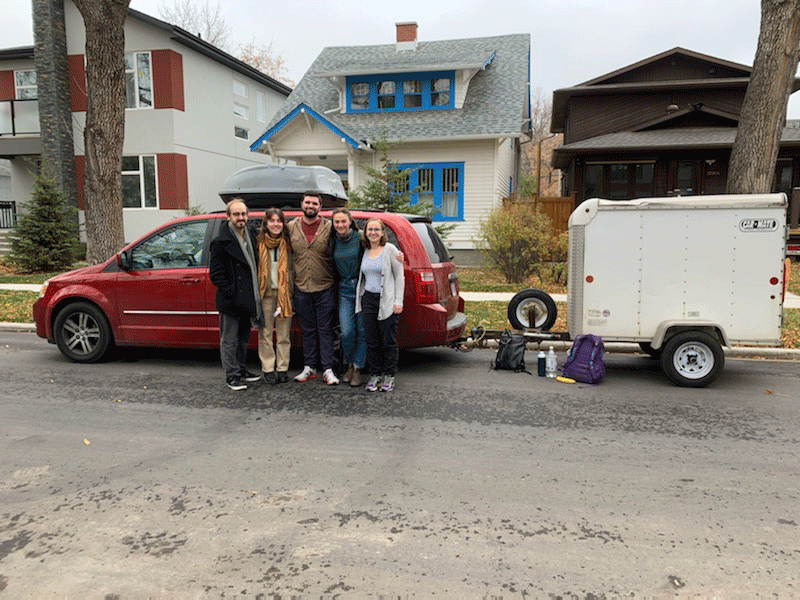Selah’s Song tells the story of Selah, an impressionable young girl who challenges the status quo in her community and how her music ultimately becomes an anthem for peace. An original folk musical, the play tackles themes such as civil disobedience, peace-making and social justice.
“The show's topic of peace is incredibly relevant considering the war in Ukraine and the unrest in Iran,” said Cedric Martin, Artistic Producer with Theatre of the Beat, the Canadian touring theatre company that produced the show.
In an interview with Arts Help, Martin explained that as a family-friendly show, “[Selah’s Song] is an opportunity for families to consider how to talk with their children around the dinner table about what is going on in the world… especially as we consider what peace can look like.”
In the play, titular character Selah is told that she is expected to uphold certain beliefs simply because that’s the way things are. However, after challenging the status quo, she inspires her community. Through Selah’s voice and music, her community begins to question the power imbalances that they have always accepted as normal.

Selah’s Song is currently on tour across Canada after kicking off on October 12th in Winnipeg, Manitoba. Since its premiere, the show ran 18 times in provinces across Canada, including Manitoba, Alberta, Saskatchewan and Ontario.
“The play inspires young people who may feel powerless to see they can change the status quo and be an active peacemaker by upholding their own beliefs and educating others on their perspectives,” Martin said. “The story is also an important reminder of how much weight one voice can carry, and that we as individuals can make a difference.”
The show’s focus on cultivating peace aligns with the United Nations Sustainable Development Goal of Peace, Justice and Strong Institutions.
The show is also the latest of many productions by Theatre of the Beat that use theatre as a platform for raising awareness of social justice issues.
Theatre of the Beat began in 2011 by Johnny Wideman, Rebecca Steiner, Kimberlee Walker and Benjamin Wert, all of whom are friends and former classmates at the University of Waterloo. “Their goal was to create grassroots theatre around the themes of restorative justice and social change,” Martin explained.
Theatre of the Beat is so named with the word “beat” having dual meanings.
In theatre, the term "beat" is a pause when seen in a script. Martin also likened this to the theatre’s shows inviting communities to pause from everyday life to think and reflect on the issues being addressed.
The other meaning comes from the Beatnik movement, which is rooted in the philosophies of poet Allen Ginsberg, who believed that the word represented people who were beaten down or oppressed, and writer Jack Kerouac who perceives the word to describe a radical group of people who lived out the teachings of the Beatitudes in unconventional ways.
In any case, Martin explained that “Theatre of the Beat aims to create theatre that embodies the philosophies of this movement…creating space for avoided conversations, challenging that which goes unquestioned, giving voice to the beaten down, and creating art that wrestles with who we want to be in this world.”

Previous social justice issues that the theatre has tackled through its theatre work include abuse within the church in response to the Me Too movement (its #ChurchToo show in 2018), LGTBQ+ inclusion in the church (This Will Lead to Dancing, which premiered in 2015), and the reintegration of previously incarcerated individuals into communities (Forgiven/Forgotten, which premiered in 2013).
In addition to this, Theatre of the Beat also has a program running out of Grand Valley Institute for Women, a federal penitentiary for women in Kitchener, Ontario. Through this program, the theatre creates shows for and featuring incarcerated people who might not typically be exposed to theatre in their daily lives.
“Our prison theatre work marks the first time in Canadian history that a professional theatre company created theatre work with incarcerated women,” Martin said about the program.
Since its inception, the theatre has put together more than 300 shows in 10 years. Shows took place in theatres, festivals, churches, universities and prisons throughout Canada, the United States and the Netherlands.
Theatre of the Beat’s upcoming production, Safe Homes Safe Communities, is set to be an anthology of three short plays, focusing on elder abuse, toxic and healthy masculinity, and early signs for domestic abuse in the relationships of young people.
In addition to its alignment with the United Nations’ focus on Peace, Justice and Strong Institutions, Theatre of the Beat’s work also ties into the goal of Reduced Inequalities.
To follow Theatre of the Beat and their upcoming shows, check out their website at www.theatreofthebeat.ca.
